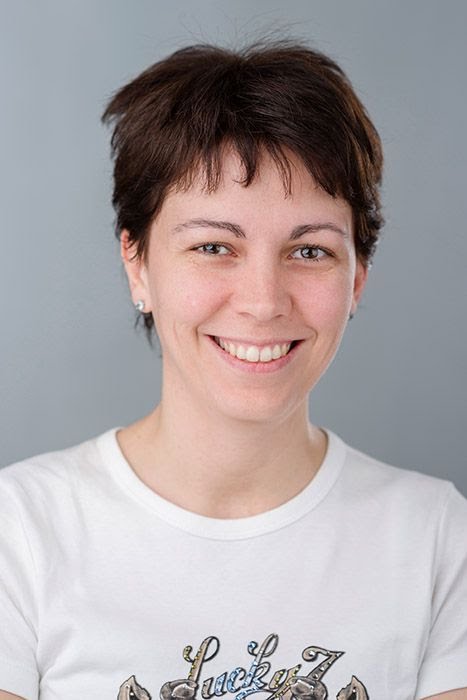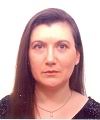Studying at the University of Verona
Here you can find information on the organisational aspects of the Programme, lecture timetables, learning activities and useful contact details for your time at the University, from enrolment to graduation.
Academic calendar
The academic calendar shows the deadlines and scheduled events that are relevant to students, teaching and technical-administrative staff of the University. Public holidays and University closures are also indicated. The academic year normally begins on 1 October each year and ends on 30 September of the following year.
Course calendar
The Academic Calendar sets out the degree programme lecture and exam timetables, as well as the relevant university closure dates..
| Period | From | To |
|---|---|---|
| primo semestre triennali | Sep 19, 2016 | Jan 13, 2017 |
| secondo semestre triennali | Feb 20, 2017 | Jun 1, 2017 |
| Session | From | To |
|---|---|---|
| Prove intermedie primo semestre | Nov 7, 2016 | Nov 11, 2016 |
| Appelli esami sessione invernale | Jan 16, 2017 | Feb 17, 2017 |
| Prove intermedie secondo semestre | Apr 10, 2017 | Apr 13, 2017 |
| Appelli esami sessione estiva | Jun 5, 2017 | Jul 7, 2017 |
| Appelli esami sessione autunnale | Aug 28, 2017 | Sep 15, 2017 |
| Session | From | To |
|---|---|---|
| Sessione autunnale | Nov 30, 2016 | Dec 1, 2016 |
| Sessione invernale | Apr 5, 2017 | Apr 7, 2017 |
| Sessione estiva | Sep 11, 2017 | Sep 13, 2017 |
| Period | From | To |
|---|---|---|
| Vacanze natalizie | Dec 23, 2016 | Jan 5, 2017 |
| Vacanze pasquali | Apr 14, 2017 | Apr 18, 2017 |
| Vacanze estive | Aug 7, 2017 | Aug 25, 2017 |
Exam calendar
Exam dates and rounds are managed by the relevant Economics Teaching and Student Services Unit.
To view all the exam sessions available, please use the Exam dashboard on ESSE3.
If you forgot your login details or have problems logging in, please contact the relevant IT HelpDesk, or check the login details recovery web page.
Academic staff
 claudio.baccarani@univr.it
claudio.baccarani@univr.it
Borello Giuliana
 giuliana.borello@univr.it
giuliana.borello@univr.it
 045 802 8493
045 802 8493
 simona.gamba@univr.it
simona.gamba@univr.it
 neliana.orlandi@univr.it
neliana.orlandi@univr.it
Study Plan
The Study Plan includes all modules, teaching and learning activities that each student will need to undertake during their time at the University.
Please select your Study Plan based on your enrollment year.
1° Year
| Modules | Credits | TAF | SSD |
|---|
2° Year activated in the A.Y. 2017/2018
| Modules | Credits | TAF | SSD |
|---|
3° Year activated in the A.Y. 2018/2019
| Modules | Credits | TAF | SSD |
|---|
| Modules | Credits | TAF | SSD |
|---|
| Modules | Credits | TAF | SSD |
|---|
| Modules | Credits | TAF | SSD |
|---|
| Modules | Credits | TAF | SSD |
|---|
Legend | Type of training activity (TTA)
TAF (Type of Educational Activity) All courses and activities are classified into different types of educational activities, indicated by a letter.
Financial accounting (2017/2018)
Teaching code
4S02459
Academic staff
Coordinator
Credits
9
Language
Italian
Scientific Disciplinary Sector (SSD)
SECS-P/07 - BUSINESS ADMINISTRATION AND ACCOUNTING STUDIES
Period
Primo Semestre Triennali dal Sep 18, 2017 al Jan 12, 2018.
Learning outcomes
The course aims to develop the knowledge on foundation and interpretation of the financial statements in the perspective of national legislation and international accounting standards, considering general principles of foundation, classification and evaluation criteria and the techniques of financial statement analysis and interpretation. The aim of this course is to improve awareness on the process for identifying income and capital as a pivotal lever for companies’ management and a way to identify the conditions of income, financial and capital equilibrium.
The course also aims to improve the student’s skills necessary to face concrete problems related to the foundation and analysis of the financial statement.
At the end of the course the student must demonstrate the capability to take the main classification and evaluation choices as starting point to draft a financial statement; the ability to carry out a financial statement analysis (financial statement reclassification, indexes calculation and flows calculation); the capability to read, understand and interpret the analyzed financial statement. Accordingly, the various topics into the program are developed also by presenting exercises, business cases, and examples built on real situations.
Program
Part I - Financial statement theory and the financial statement frameworks
1. Financial statement functions
2. Financial statement discipline in accordance with national law and international accounting standards
3. General principles of the financial statement
4. Financial statement structure and contents in accordance with national law and international accounting standards
5. New waves on corporate reporting - Towards Integrated Reporting
Part II – Evaluations on the financial statement contents in accordance with national law and international accounting standards
6. Assets evaluation
6.1 Property, plant and equipment
6.2 Intangible assets
6.3 Financial long-term assets, equity investments and other financial instruments
7. Evaluation of current assets
7.1. Inventories
7.2. Work in progress
7.3. Credits
8. Other assets
8. Evaluation of liabilities
Part III – Areas of employment of the financial statements: the financial statement analysis
10. Aims, potentialities and limits of the financial statement analysis
11. Areas of employment and techniques for the financial statement analysis
12. Reclassification technique
13. The indexes calculation technique
14. Flow calculation technique
Part IV - Introduction to the consolidated financial statement
Textbooks
A. Palma (edited by), Il bilancio di esercizio. Profili aziendali, giuridici e principi contabili, V ed., Giuffrè, Milano, 2016.
G. Brunetti, S. Corbella, L’interpretazione e l’analisi di bilancio, copisteria La Rapida, 2017.
R. Stacchezzini (eds.), Esercizi in tema di bilancio d’impresa, parti I, II e III, copisteria La Rapida, 2017.
Lesson materials are available on the e-learning platform accessible by your personal credentials.
Teaching focuses on frontal lessons, exercises and applications, references to concrete cases, also inferred from large company financial statements.
Tutoring is provided to support the learning process during the course, that is carried out through supplementary student office based on small groups of students. Tutoring activities aim to review topics and exercises dealt with in the course.
| Author | Title | Publishing house | Year | ISBN | Notes |
|---|---|---|---|---|---|
| R. Stacchezzini, C. Florio | Bilancio d’impresa. Esercizi svolti | Egea | 2018 | ||
| Angelo Palma (a cura di) | Il bilancio di esercizio. Profili aziendali, giuridici e principi contabili (Edizione 5) (Edizione 5) | Giuffrè | 2016 | ||
| Giorgio Brunetti, Silvano Corbella | L’interpretazione e l’analisi di bilancio | Copisteria La Rapida | 2017 |
Examination Methods
The exam consists of a written test with a score based on a 31-points (31/30 equals 30 with praise).
The test is composed by multiple answer questions (mainly, but not exclusively, theoretical) and of a quantitative application. Multiple questions are designed to test the knowledge about the program, as well as the understanding of the technical language and the calculation skills in financial statement preparation and analysis. The exercise aims to verify the methodological application of the acquired knowledge in order to ascertain the student's specific knowledge and skills on the various operational aspects related to the financial statement preparation and analysis. Students pass the written test if they reach a total score of (at least) 18/31, with the due to have at least 12/31 in multiple answers (maximum 24/31) and 3.5/31 in the exercise (maximum 7/31).
Students who pass the written test can then access an optional oral test. The oral examination may be requested by the student who has passed the written test if he or she is convinced that his/her preparation is not reflected in the results of the written test.
Furthermore, at the middle of the course, a partial interim test is proposed. This test is about one-third of the program and provides 12 points (out of 31 total that can be acquired in total by this exam). Those who pass the interim test achieving a score of at least of 6 points (6/12) will not have to study again the related first part of the program and therefore, in the final exam—just at the first session following the closing of the course—will answer only half of the questions of this last test, as well as the quantitative application exercise.
Students who passed—and not refuse—the interim test pass the final test if their second test score at least 6/12 points (maximum 12/31) on the cross and 3.5 (maximum 7/31) on the quantitative applicative question. The final mark is the sum of the scores obtained in the interim and final tests.
Examination methods are not differentiated between attending and non-attending students.
Type D and Type F activities
| years | Modules | TAF | Teacher |
|---|---|---|---|
| 1° | Advanced Excel Laboratory (Verona) | D |
Marco Minozzo
(Coordinator)
|
| 1° | Excel Laboratory (Verona) | D |
Marco Minozzo
(Coordinator)
|
Career prospects
Module/Programme news
News for students
There you will find information, resources and services useful during your time at the University (Student’s exam record, your study plan on ESSE3, Distance Learning courses, university email account, office forms, administrative procedures, etc.). You can log into MyUnivr with your GIA login details: only in this way will you be able to receive notification of all the notices from your teachers and your secretariat via email and also via the Univr app.
Graduation
List of thesis proposals
| theses proposals | Research area |
|---|---|
| Proposte di tesi triennali | Various topics |

























